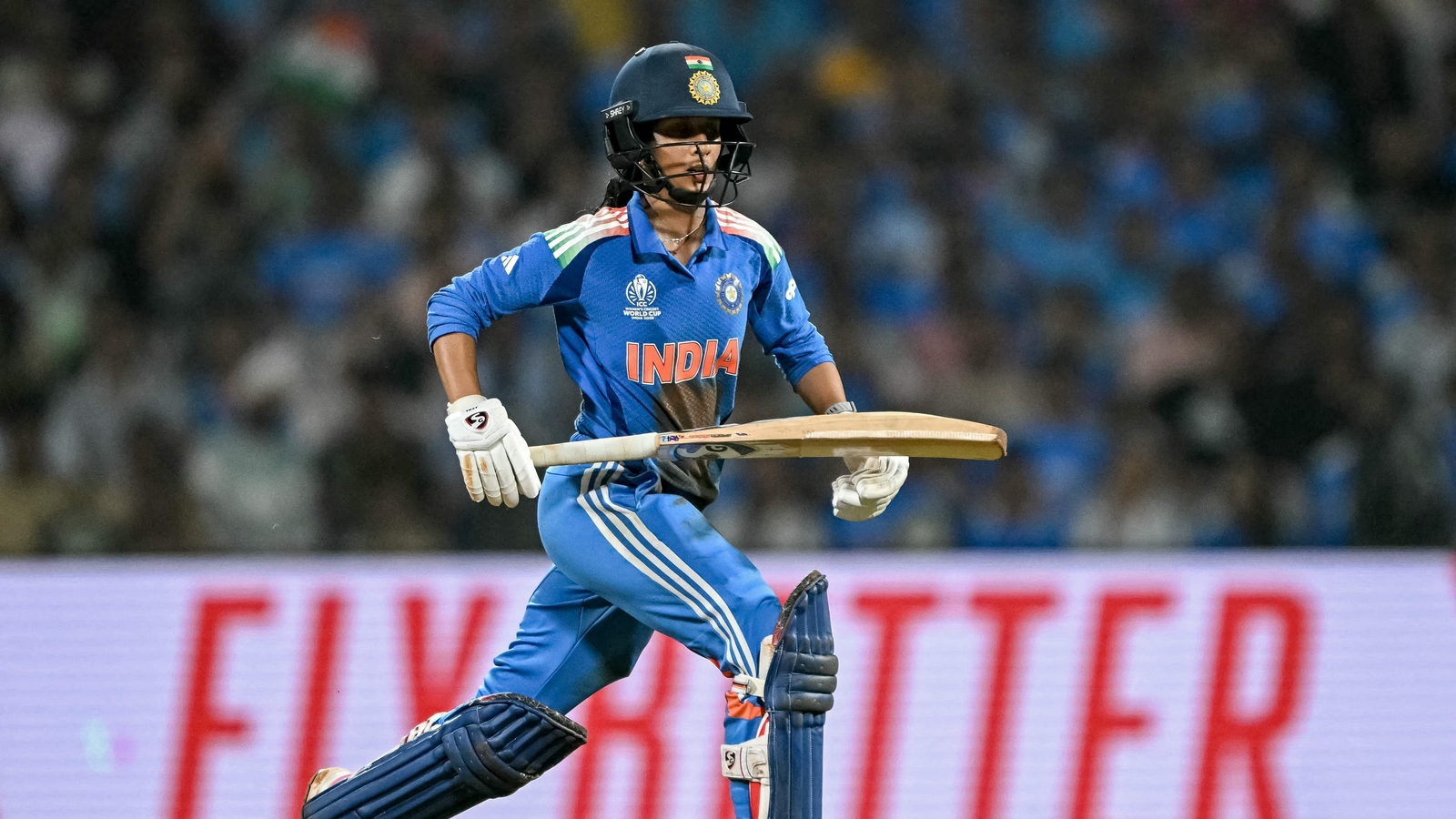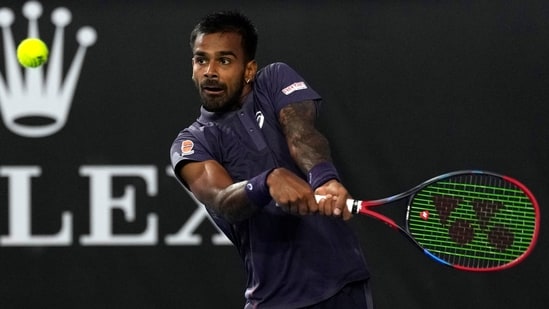
“Here we go again…” If all fairytales begin with “Once upon a time…”, then the not-fairytales are bound by “Here we go again…”
“Here we go again…” was the underlying theme of much of Thursday night’s first half of the Women’s World Cup semifinal in Navi Mumbai. Australia, unbeaten Australia, the seven-times champions, piled on the runs. Phoebe Litchfield, all of 22, made the most magnificent hundred. Ellyse Perry, the classy No. 3, weighed in with 77. And Ashleigh Gardner, the No. 1 all-rounder bar none, steadied a slightly rocking ship with a blazing 63.
“Here we go again…”, one felt, after the Aussies amassed 338, feeding off their batting might and helped along by an unusually sloppy India, who gifted runs galore with shoddy fielding and undisciplined bowling.
No team had chased more than 330 successfully in Women’s ODIs; Australia (who else?) held that record after their stunning conquest of India in Visakhapatnam earlier in the tournament. Australia held a commanding 49-11 ODI record against India, Alyssa Healy’s ladies hadn’t lost a 50-over World Cup outing since being dumped from the 2017 semifinals in Derby by India, fuelled by Harmanpreet Kaur’s extraordinary 171.
“Here we go again…” Right? Wrong. Comprehensively wrong.
A packed house at the DY Patil Stadium was treated to a masterclass in the art of chasing by the slight, unlikely figure of hometown hero Jemimah Rodrigues. A picture of outward calm, her face, demeanour and conduct showing none of the turmoil raging through her mind, the 25-year-old owned the semifinal. After her superbly crafted unbeaten 127 powered her team to a Sunday showdown against South Africa and guaranteed a first-time champion, Jemimah said, with tears, that this night wasn’t about her. But it was, Jemimah. It certainly was.
For the last month, she revealed, she cried every day. She didn’t have a great start to the tournament – 0, 32, 0, 33 – and was dropped for the match against England in Indore 11 nights back, with India opting for an additional bowling option. Her cup of woe was complete, her World Cup potentially over.
Then, not only was Jemimah recalled for the must-win, virtual quarterfinal against New Zealand, she was thrust to No. 3, a slot where she had batted just twice previously in ODIs. Coach Amol Muzumdar revealed that it had been a late decision, influenced by the 212-run opening alliance between Smriti Mandhana and Pratika Rawal. Jemimah responded in style, exposing the folly of benching her in the four-run loss to England with an unbeaten 76 off just 55 deliveries.
In the semifinal, Jemimah again batted at No. 3. Again, whether it was a late decision or not, she was informed late, just five minutes before the Indian chase began, when she was in the shower, through a knock on the door. Perhaps just as well, hindsight might suggest, because she had no time to think, to analyse, to whip herself up into a state.
Jemimah was pressed into service in the second over after Shafali Verma was trapped in front by Kim Garth. Shafali, a late replacement for the injured Pratika, was expected to provide the impetus the innings needed up top; that responsibility now was Jemimah’s. How things had turned in ten days’ time.
“Here we go again…” resurfaced when the in-form Mandhana was strangled down leg, leaving India on 59 for two in the final over of the Powerplay. 280 needed at nearly seven an over when Harmanpreet, the captain, joined her No. 3 batter.
Jemimah was among the large gathering at the Mumbai airport in July 2017 when India returned from the World Cup, beaten by England in a final they should have won, but having won hearts and fired the imagination of a nation. All of 16 then, she had watched on starry-eyed, inspired by Harmanpreet’s heroic knock; more than eight years later, she joined hands with her captain in a spectacular partnership (167) that altered the course of the semifinal, imperceptibly at first but with growing authority and flair with the passage of time.
Jemimah isn’t the most ferocious ball-striker. She can’t tonk it a mile, like Harmanpreet or the irrepressible Richa Ghosh, but she is busy, industrious, smart and innovative. Successfully conquering her inner demons and somehow maintaining the composure so imperative in such a tense situation on such a huge stage, she dragged Harmanpreet, Deepti Sharma, and Richa along with her. She tired in the humidity; she lost strength, but not focus or concentration. Her calmness was infectious, her purpose tunnel-visioned. Not even a tryst with three figures broke the spell. It wasn’t until Amanjot Kaur smacked the winning four, with nine balls left, that the dam burst.
Like she had done for the last month, Jemimah Rodrigues cried again. But this time, they were happy tears. Tears of joy, as they say.
“Here we go again…”? More like, “Once upon a time…”




